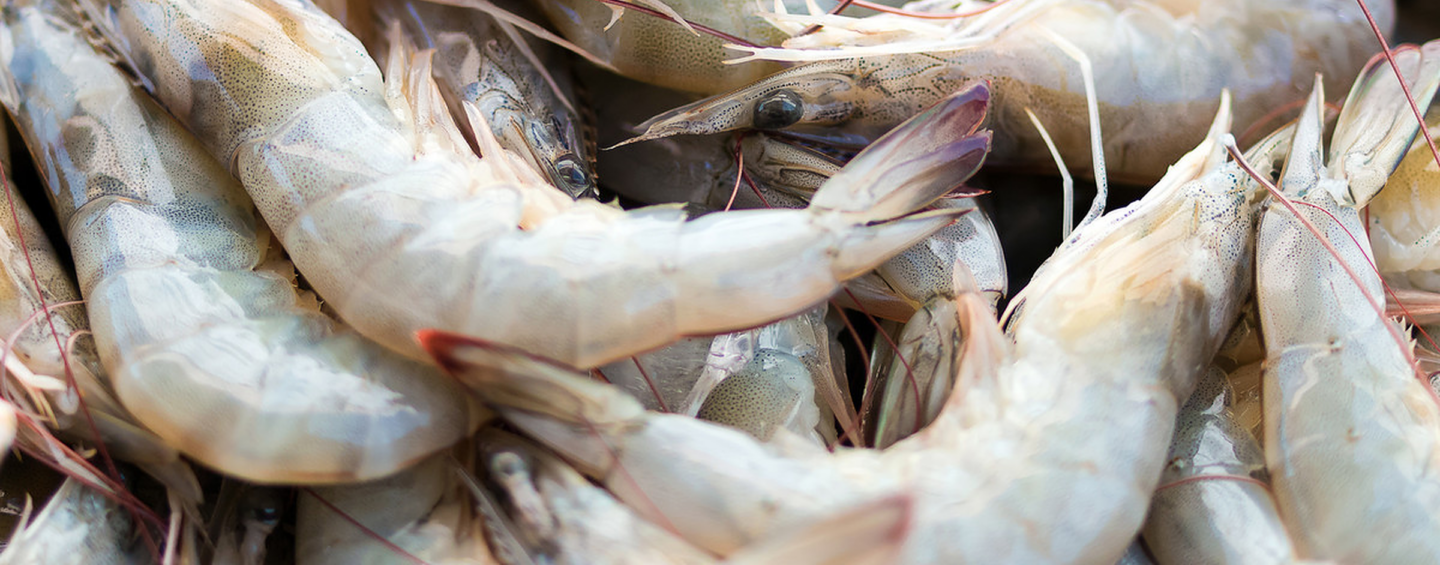First, buyers and suppliers of seafood are becoming increasingly involved in fishery and aquaculture improvement projects. They recognize their ability to affect change by working with their suppliers, and the benefits of doing so – not just the ecological benefits to the fishery and ecosystem, but the economic benefits to the seafood industry as well. Second, industry led FIPs are on the rise. SFP has been focusing less effort on NGO led FIPs, and more effort on encouraging industry to lead their own FIPs. After all, the seafood industry itself is the most powerful force for improvement in fisheries. And finally, the younger members of the seafood industry are showing a great understanding of and enthusiasm for engagement in fishery improvements. Young employees of seafood suppliers are being looked to as a valuable resource for spearheading improvement efforts.
And apart from the general trends, here are some highlights of the kinds of work we do at trade shows:
Gulf of California Shrimp Supplier Roundtable.
At trade shows, we set up supplier roundtable meetings to provide the supply chain with a platform to oversee multiple fishery improvement projects (FIPs) in a region and find synergies between companies to help advance improvement efforts across FIPs. During this supplier roundtable, we reviewed the major advances made in the Gulf of California industrial shrimp fishery over the last few years.
It’s remarkable that FIP efforts have moved this fishery to a level that’s comparable to the most advanced shrimp fishery management in the world. Approximately 25% of the fleet has signed control documents for their buyers, pledging that the vessels are following all government regulations and agreeing to random audits to ensure compliance (violation of the control documents can result in cancellation of purchasing contracts). These audits have begun. Suppliers purchasing from this fishery are encouraged to have their producers sign control documents and perform audits before the beginning of the next shrimping season (September 2014).
Hainan, China Tilapia Aquaculture Improvement Project
A number of retail buyers met with Hainan Tilapia AIP industry participants to show their support of the in-country sustainability work. Chinese producers and suppliers spoke on the importance of their work and their desire to expand. They’ve noticed that the label “Hainan tilapia” now resonates with buyers in a more positive way than simply “Chinese tilapia”. This reflects the growing recognition of the progress made by the Hainan Tilapia Sustainability Alliance, an industry led group focusing on tilapia aquaculture improvements throughout the Hainan zone.
Northwest Atlantic Cod Supplier Roundtable
In a severely depleted cod fishery like this, the first step is to find ways for the supply chain to start the improvement process. Even for stocks that are far from a position where they could achieve a sustainability certification, FIPs can still be implemented to generate incremental improvements in the stock status and environmental impacts of harvest.
Indonesia Fisheries Meeting
Another milestone for us was the meeting where we connected Indonesian fisheries officials with buyers in North America. The Indonesia Ministry of Marine Affairs and Fisheries (MMAF) brought a large delegation of Indonesian processors and exporters to the show, and this meeting showed them how enthusiastic the North American market is for sustainable fisheries and FIPs. Indonesia is one of the SFP’s top priority areas because of the volume of seafood harvested and raised, the rich biodiversity, and the dependence of the Indonesian people of seafood products. Our next step is to encourage the Indonesia supply chain to become engaged in existing FIPs or start their own.
US Gulf of Mexico Shrimp Supplier Roundtable
This meeting brought together suppliers that purchase shrimp throughout the US Gulf of Mexico and enabled them to receive updates on the three current FIPs (Texas, Louisiana, and Florida pink shrimp) and one new industry led FIP (Florida shrimp). Texas Sea Grant was present to inform the supply chain of their new turtle excluder device evaluation and training program, which will help ensure that the Gulf-wide shrimp fleet does not exceed the 12% sea turtle capture rate mandated by the federal government and teach shrimp boat captains how to inspect their own gear. In addition, a supplier from Louisiana commented on this state’s prohibition of state enforcement of federal turtle excluder device regulations, and their commitment to work with the Louisiana shrimp industry to gather support for a repeal of this legislation.
Gulf of Mexico Reef Fish Supplier Roundtable
The Gulf of Mexico reef fish supplier roundtable meeting covered both US and Mexican snapper and grouper fisheries in the Gulf. A brief sustainability overview was presented by SFP, then FIP updates were presented by industry participants of the US Reef Fish FIP and three new FIPs in Mexico (two on grouper, and one on snapper). The majority of harvest from the Mexican industrial grouper and snapper fleets is exported to the US, giving the US market a great deal of influence over these fisheries. US importers are increasingly recognizing their ability to improve sustainability of this important product.

